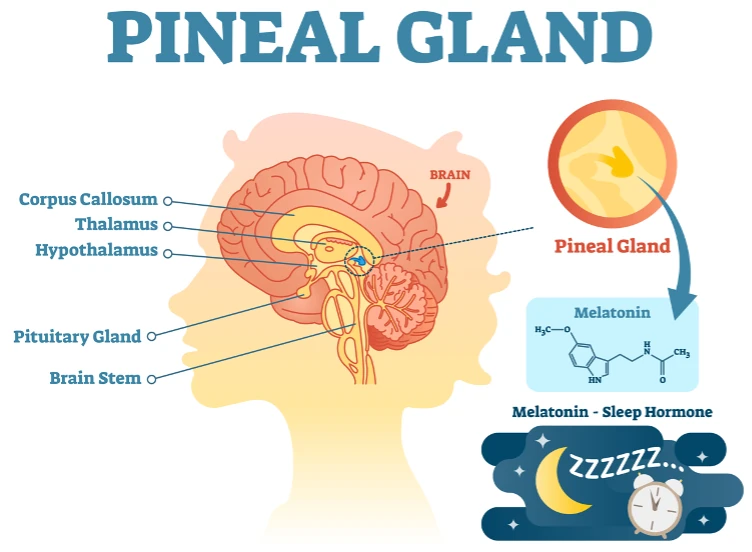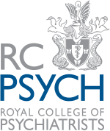Sleep is crucial for overall well-being, impacting physical health, cognitive function, and emotional balance. However, oversleeping can disrupt our natural sleep cycle, leading to fatigue, difficulty concentrating, and health risks. By addressing oversleeping and establishing healthy sleep habits, we can improve our overall quality of life and promote optimal functioning. This article will provide information on understanding sleep needs, recognising symptoms of oversleeping, identifying its potential causes, and seeking professional help when necessary.
Understanding sleep needs
Sleep is a complex process that follows distinct cycles and stages. A typical sleep cycle consists of four stages; each stage is crucial in maintaining physical and mental well-being. The two main stages of sleep are non-REM (NREM) and REM sleep. NREM sleep is divided into three stages, with the deepest stage of sleep crucial for tissue repair, growth, and immune function. REM sleep is characterised by increased brain activity and vivid dreaming. It is essential for cognitive processes, emotional regulation, and memory consolidation. These stages alternate throughout the night, each lasting approximately 90 minutes.
The recommended sleep duration for adults is generally between 7 to 9 hours per night. However, it’s important to note that individual sleep needs vary based on age, genetics, activity levels, and overall health. Some individuals may naturally require more or less sleep to feel well-rested and function optimally. Disruptions in sleep patterns can lead to various issues, including daytime fatigue, cognitive impairment, and an increased risk of certain health conditions. Paying attention to your body’s signals and adjusting your sleep routine can help you find the optimal amount of sleep for your needs.
Symptoms of oversleeping
While some individuals may simply require more sleep than others, oversleeping can indicate an underlying issue. If excessive sleep is accompanied by unexplained weight gain, changes in appetite, or other concerning symptoms, it is advisable to consult a sleep specialist. Some of the common symptoms associated with oversleeping include:
Grogginess upon waking: Feeling excessively tired and sluggish after waking up, even after a long sleep. This can be caused by disruptions in the sleep cycle or an imbalance in the body’s natural rhythms.
Headaches: Excessive sleep can lead to dehydration and disruptions in brain chemicals, resulting in headaches or migraine upon waking.
Daytime fatigue: Paradoxically, oversleeping can cause fatigue and a lack of energy throughout the day. This can be due to disruptions in the circadian rhythm or a lack of restorative sleep.
Difficulty concentrating: Oversleeping makes it challenging to focus on tasks and improve work or academic performance.
Low mood: Excessive sleep has been linked to depression and anxiety, as well as a general sense of lethargy and lack of motivation. In some cases, oversleeping can be a way for the body to cope with emotional distress or a symptom of an underlying mental health condition.
Cognitive impairment: Prolonged oversleeping can lead to cognitive deficits, such as impaired memory, decision-making abilities, and problem-solving skills.
Increased risk of health issues: Oversleeping has been associated with a higher risk of developing certain health conditions, such as obesity, diabetes, heart disease, and stroke.
It is important to note that while some of these symptoms may be related to oversleeping, they can also indicate underlying health conditions. If you experience persistent or severe symptoms, it is advisable to seek medical attention.
What causes oversleeping?
Identifying and addressing the underlying causes of oversleeping is important, as excessive sleep can negatively impact overall health and well-being. Several factors can contribute to oversleeping, including:
Underlying sleep disorders
Conditions like sleep apnoea, narcolepsy, or restless leg syndrome can disrupt sleep patterns and lead to excessive daytime sleepiness and oversleeping. Sleep apnoea is characterised by repeated breathing interruptions during sleep, which can cause fragmented sleep and excessive daytime sleepiness. Narcolepsy, on the other hand, is a neurological disorder that affects the brain’s ability to regulate sleep-wake cycles. Restless leg syndrome is characterised by an uncontrollable urge to move the legs, often accompanied by uncomfortable sensations, which can severely disrupt sleep quality.
Medications
Certain prescription drugs, such as antidepressants, sedatives, or pain medications, can cause drowsiness and oversleeping as a side effect. It is important to discuss potential sleep-related side effects with your healthcare provider.
Mental health conditions
Conditions like depression, anxiety, and seasonal affective disorder (SAD) can contribute to disrupted sleep patterns and oversleeping. These conditions can affect the regulation of sleep-wake cycles and lead to excessive sleep as a coping mechanism or a symptom.
Lifestyle factors
Inconsistent sleep patterns, exposure to blue light from electronic devices before bedtime, and lack of physical activity can disrupt the body’s internal clock and sleep regulation. Unhealthy dietary habits, such as consuming caffeine or heavy meals close to bedtime, can also contribute to poor sleep quality and oversleeping.
Hormonal imbalances
Hormonal imbalances, such as thyroid or cortisol imbalances, can impact sleep patterns and contribute to oversleeping. Hormonal shifts during major life events, such as pregnancy, postpartum, or menopause, also disrupt the body’s natural sleep-wake cycle.
Chronic pain or illness
Conditions that cause chronic pain or discomfort, such as fibromyalgia or arthritis, can disrupt sleep quality and lead to compensatory oversleeping.
How to feel better after oversleeping?
If you find yourself oversleeping and feeling groggy, there are several strategies you can implement to improve your alertness and energy levels:
Get some sunlight exposure: Natural light exposure can help regulate your body’s circadian rhythms and improve wakefulness. Try to spend some time outdoors or near a sunny window in the morning to help reset your internal clock.
Stay hydrated: Drinking water can help combat dehydration and improve overall energy levels. Oversleeping can lead to dehydration, so make sure to replenish your fluids throughout the day.
Light exercise: Light physical activity, such as a short walk or stretching, can increase blood flow, boost alertness, and release endorphins to improve mood and energy levels.
Avoid caffeine and naps: While caffeine may provide a temporary energy boost, it can further disrupt sleep patterns and contribute to a vicious cycle of oversleeping. Similarly, naps after oversleeping can further throw off your sleep-wake cycle.
Practice relaxation techniques: If feelings of grogginess or fatigue persist, try relaxation techniques such as deep breathing exercises, meditation, or yoga. These practices can help reduce stress and improve overall well-being.
Establish a consistent sleep schedule: Establishing a consistent sleep schedule is crucial for maintaining healthy sleep patterns. Go to bed and wake up at the same time every day, including weekends. Even if you oversleep, aim to get back on track with your regular sleep schedule as soon as possible.
By implementing these strategies, you can help alleviate the grogginess and fatigue associated with oversleeping and gradually adjust your sleep patterns to a healthier routine.
When to speak to a professional
While occasional oversleeping is normal, if you consistently struggle to wake up on time or feel excessively tired during the day, it may be time to consult a professional. Persistent oversleeping that disrupts your daily routine, work, or personal life could indicate an underlying sleep disorder such as sleep apnoea, hypersomnia, or narcolepsy. If oversleeping is accompanied by symptoms such as snoring, breathing difficulties during sleep, or excessive daytime sleepiness, it’s crucial to seek medical advice.
A sleep specialist, such as a sleep medicine physician, can help diagnose the root cause of your oversleeping through comprehensive evaluations and sleep studies. They may recommend undergoing a polysomnogram, a test that monitors your brain waves, breathing patterns, and other physiological factors during sleep.
Based on the findings, the sleep specialist can diagnose conditions like sleep apnea, insomnia, or circadian rhythm disorders and recommend appropriate treatment options, such as lifestyle changes, medication, or therapy. Don’t hesitate to consult a professional if oversleeping persists and affects your overall well-being.










